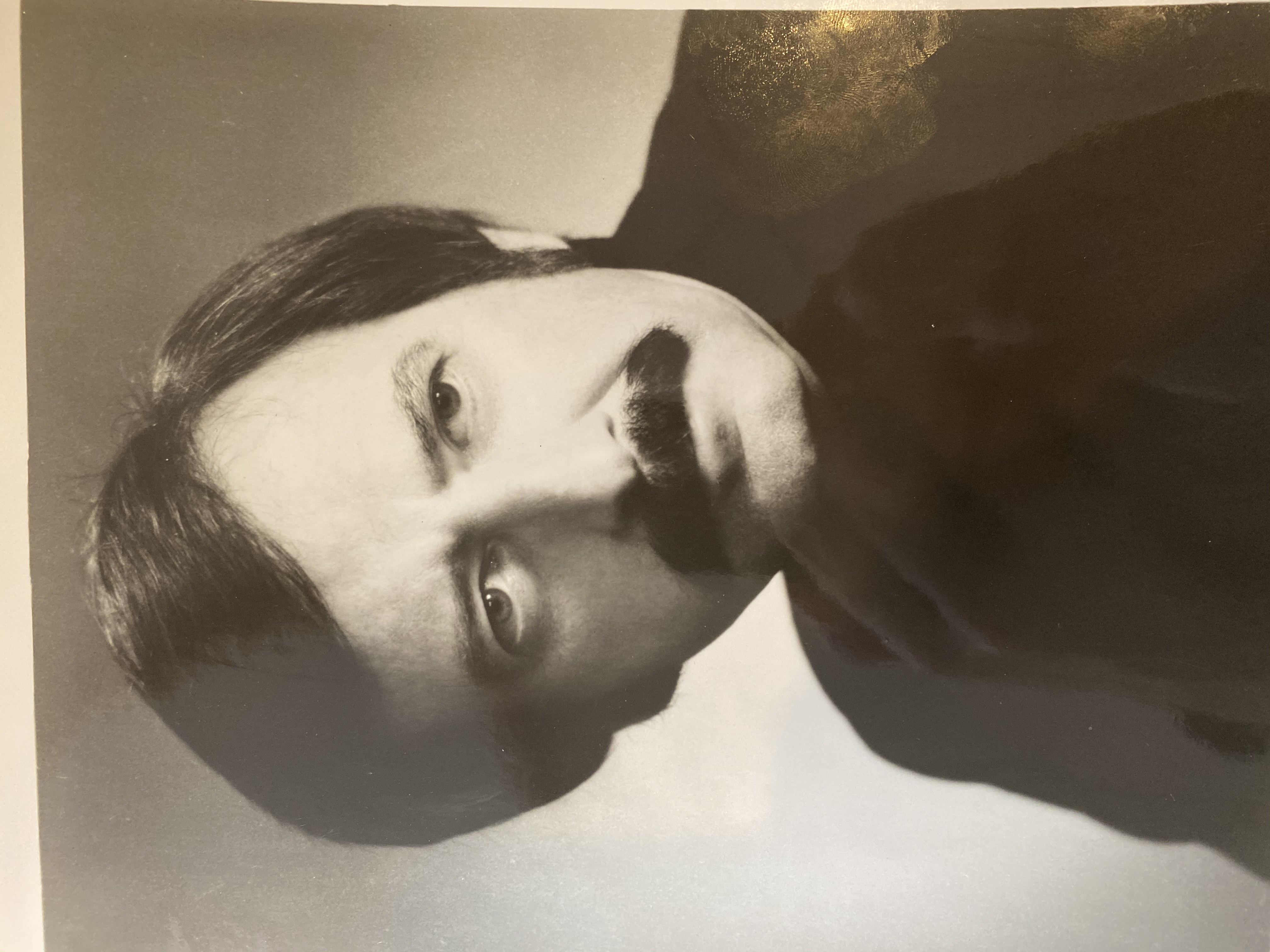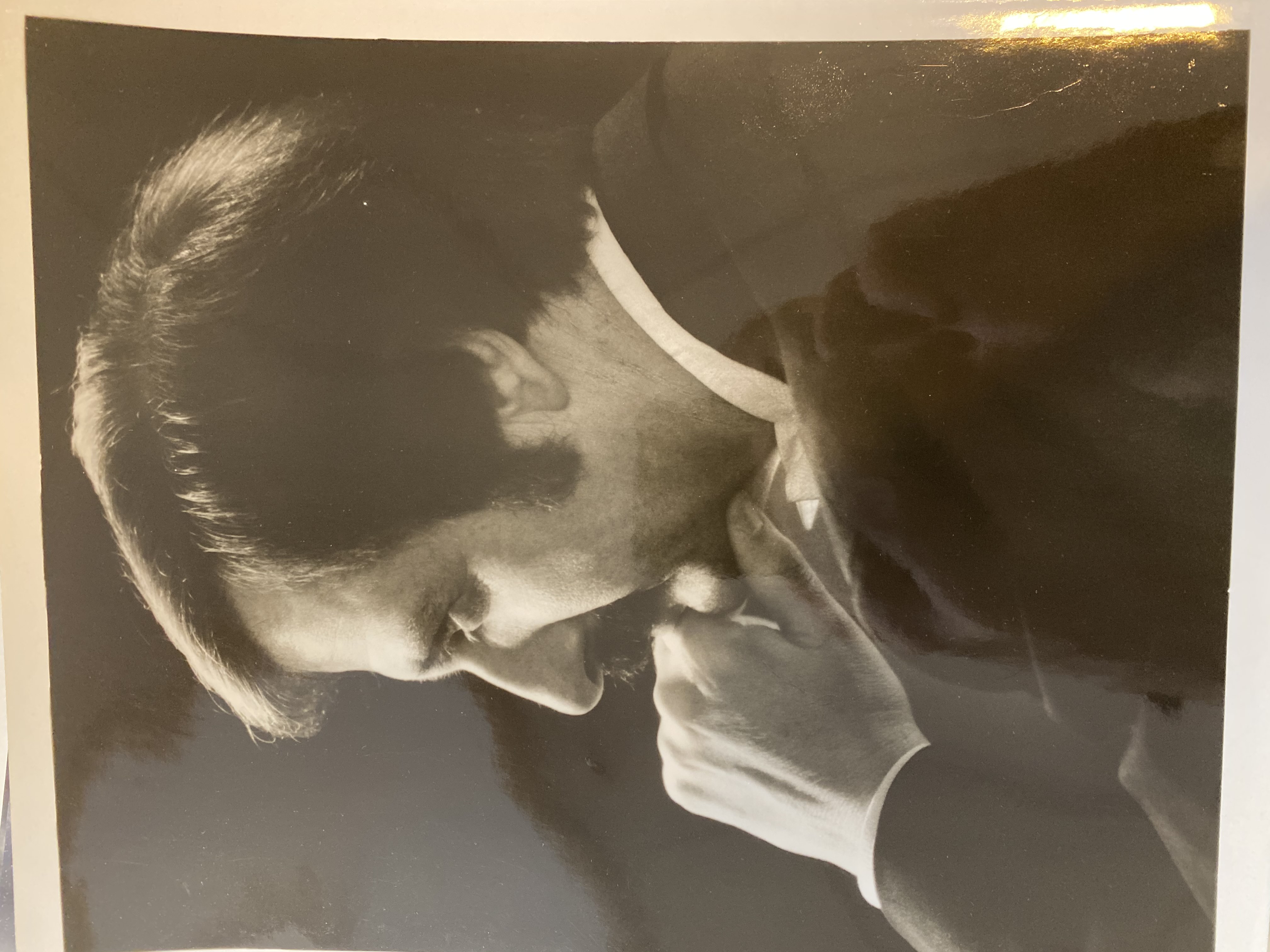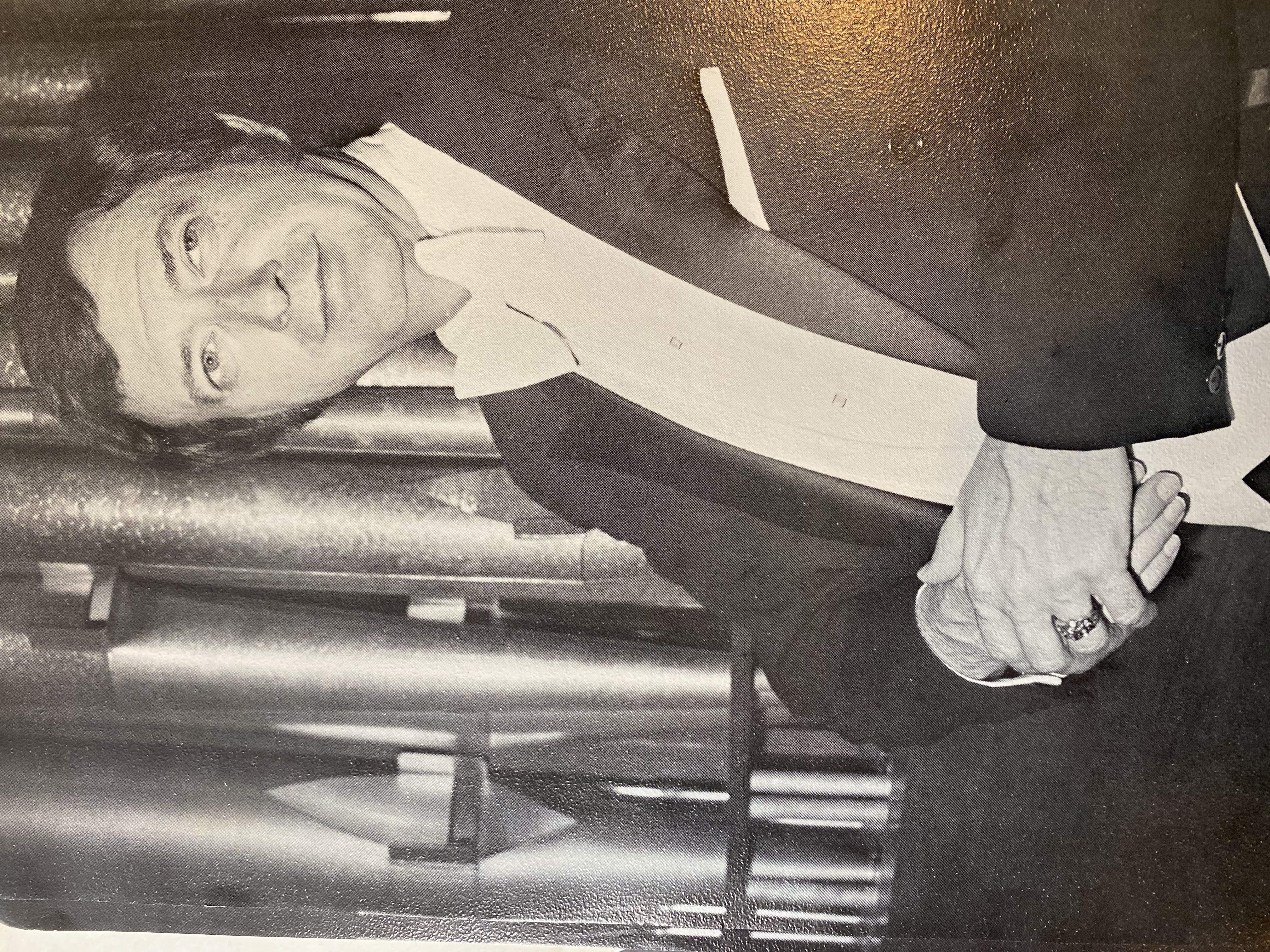on Richard Forrest Woods – Part 9
 Sunday, April 20, 2025 at 7:01PM
Sunday, April 20, 2025 at 7:01PM
This is one of many installments of a biography of mentor and friend Dick Woods. See here for the entire series.
*******************
Some writing on the wall
Dick succeeded Mr. G. Alex Kevan as Organist/Choirmaster for the parish of St. John the Divine in Houston. During my tenure, I discovered many photos of Mr. Kevan and many anthems and service pieces he had written. His music program for the parish appeared to be squarely grounded in the great American musico-liturgical heyday of the 1950s-1970s. Therefore, it is reasonable to assume that the Rev. Thomas A. Roberts, who hired Dick in 1972, was equally grounded in that liturgical heyday. But Father Roberts died suddenly and unexpectedly the following year and was succeeded by The Rev. Maurice “Ben” Benitez.
Fast-forward to 1993: rector Benitez was now Bishop Benitez. He was unable to attend Dick’s funeral. He prepared a letter to be read aloud during the funeral. In it, the bishop related the story of his and Dick’s first sit-down at St. John the Divine in 1974, during which he insisted Dick include ‘renewal music’ in services. He then reported that Dick sighed deeply and asked resignedly, “Well, do I have to do that every week?” That short anecdote reveals that when Dick took the post under Fr. Roberts, perhaps it was in the sort of environment that would feed his musical and liturgical soul. Perhaps based on the legacy of Alex Kevan and Fr. Roberts’s direct recruitment, Dick saw at St. John’s an opportunity to ply his trade unimpeded. But this story also bears out how easy it was – even in the 1970s – for St. John’s to drift into musical licentiousness, notwithstanding its ultra-conservatism otherwise. But Dick’s response in that story also suggests that he was accepting of where things were heading. As a former lecturer on church music at the Seminary and having served as the head musician at several parishes around the country, he knew very well the ‘renewal movement’ was on the rise, and perhaps he was increasingly resigned to the fact that the movement would probably catch up with him, no matter where. Although Benitez was demonstrably one of Dick’s biggest fans all the way to the end, that meeting was a turning point, a sort of writing on the wall, by my calculations. Dick soldiered on, and when rector Benitez became Bishop Benitez in 1980, the next rector, the Rev. Laurens A. “Larry” Hall embraced the same trend in music, yet to a much greater degree. Dick soldiered on.
--------------------------------
The annual parish hymn-sing each Thanksgiving Wednesday was a highlight. It was an evening of Thanksgiving dinner in the parish hall, followed by about an hour of hymn singing with piano and small orchestra. We did nothing else like it all year. It was always a full house, and I loved seeing everyone enjoying themselves outside of liturgy. In 1991, Dick was particularly inspired to compose arrangements for the orchestra for many of the hymns for the event. He had learned that rector Larry Hall could not attend that year, and so Dick felt freer to do his own thing and had a surge of creativity. The two of us stayed at the church one Friday evening until 4:00 am the next day, composing arrangements and making copies. We were nearly derailed by the rector, though, who had been insisting there be an element for children during the event. But Dick felt it wasn’t a children’s kind of event, and I felt the children would be just fine singing hymns along with everyone else, just like on Sundays. Larry announced in full staff meeting one week that since he was going to be away for it that year, he wouldn’t push the children thing; otherwise, he would have pulled rank. He seemed truly irritated.
Larry and Dick had worked together long before I arrived, but the meeting just described was the first time I sensed Larry losing patience with Dick, and I became uncomfortable with the realization that Dick and I might have been on thinner ice than I first thought. Things didn’t feel transparent. I began to wonder if Larry merely tolerated Dick since he ‘inherited’ Dick from one of Larry’s best friends and one of Dick’s biggest fans, former-rector-now-bishop Benitez. I woke up to the sense that Dick was somehow in the rector’s way and that I was likely guilty by association. I became manifestly ill at ease for the duration of my tenure there.
Next time: The Choir of St. John the Divine, Houston
 Joby Bell | tagged
Joby Bell | tagged  Richard Forrest Woods
Richard Forrest Woods 


